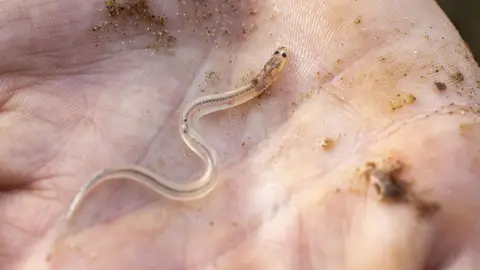Eel exports stopped over illegal trading concerns
 Getty Images
Getty ImagesA company that exports elvers has been refused an export licence over concerns of "illegal trading".
UK Glass Eels, based in Gloucestershire, was supplying stock to Russian-based company Goodfish.
The government's Department for Environment, Food and Rural Affairs (Defra) has now refused the company an export licence, citing concerns of "significant risks of illegal trading compounded by the current situation in Russia".
UK Glass Eels, which has been approached for comment about the licence refusal, had previously said it "guaranteed" the elvers were only used for conservation purposes.
A Defra spokesperson added: "We have robust rules and laws in place to safeguard protected species, including glass eels, and any applications to export them are rigorously assessed to ensure they are legal and sustainable."
UK Glass Eels said it was exporting the elvers as part of a project to recover and conserve the population of glass eels in lagoons in Poland and Lithuania.
However, a UK conservationist had launched a petition, which was signed by more than 50,000 people, calling for the supply to be stopped, claiming that the exported species are being farmed for food.
Yuri Vinokurov, executive manager of Goodfish, said in a statement issued in March: "This project is designed to preserve and restore the eel population in the bays of the Kaliningrad region.
"Goodfish guarantees that the glass eel larvae obtained for the purpose of stocking the Vistula and Curonian Lagoons will not be used for other purposes."
Follow BBC Gloucestershire on Facebook, X and Instagram. Send your story ideas to us on email or via WhatsApp on 0800 313 4630.
